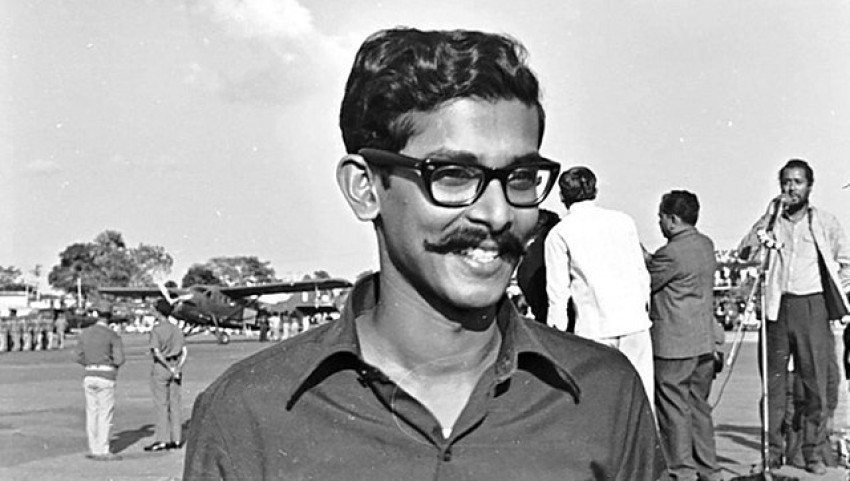
sheikh kamal son of Sheikh mujibar (part 1)

When his father Sheikh Mujibur Rahman was arrested on October 14, 1949 while agitating for the national language, Sheikh Kamal was a small child of two months and ten days. When he was released on February 27, 1952, Sheikh Kamal had barely learned to speak. But did not see and recognize father in that way. At one point, the elder sister suddenly asked Sheikh Hasina, 'Smile, father, I call your father a little father?' 5/6 years of Sheikh Kamal's childhood were spent in Tungipara, a village like the picture in the green samarohe of tal-tamal-hijal trees near the Baigar river bank. Sheikh Mujib became the minister when the cabinet was formed under the leadership of Sher Bangla AK Fazlul Haque after the victory of the United Front led by the Awami League in the 1954 elections, after which he started living in Dhaka with his family.
Educational Life:
Sheikh Kamal was admitted in KG-1 class in 1956 at Don's Kindergarten School located at 112-Segunbagicha. After studying from KG-1 to KG-3 and Standard-1 to Standard-3 in that school, he was admitted to BAF Shaheen School in Class V in 1961 with double promotion. During his student days, he was elected the captain of Shaheen School's Titumir House. There almost everyone in the House became his supporters for his manners and liberal-moral-humane qualities. If Sheikh Mujib was out of jail, he himself used to bring Sheikh Kamal to school. Otherwise Kamal used to go to school by himself on a scooter. He passed SSC in 1967 from this school and later got admission in Dhaka College. He passed the HSC examination from Dhaka College in 1969.
In 1969, Sheikh Kamal was admitted to the Department of Sociology at Dhaka University. He was a second year student of Bachelor (Honours) during the liberation war. After independence in 1974 in the final graduation (Honours) examination, he stood fifth in the second class despite suffering from illness. Sheikh Kamal used to participate in every class even in the tutorial class during his university life. His handwriting was also very beautiful. Later, in 1975, he participated in the postgraduate examination in the same subject and participated in the final oral examination of the course on 14th August. Post-martyrdom results were released on January 29, 1976. In this examination too he passed in second class, but many of his teachers felt that Kamal was deprived of the marks he deserved, otherwise he would have done better.
Participation in Liberation War:
On the night of March 7, Bangabandhu Sheikh Mujibur Rahman took the entire family to dinner and said, "What I had to say in today's public meeting, I have said publicly." The government can now arrest or kill me at any moment. That's why from today you will eat together with me twice a day.Same rule runs till noon on 25th March. On March 25th, around 9 pm, after dinner, Sheikh Kamal said goodbye to everyone and went out. He returned to the house number 32 early the next morning and met his mother and brothers. On March 26, Pakistani troops again attacked the house of No. 32. Then Dr. Samad Sahib of the neighboring house sent his eldest son and took Begum Mujib, Sheikh Jamal and Sheikh Russell to his house. Sheikh Kamal went out to join the liberation war. After leaving home, he stayed with a Swiss family in Dhanmondi for some time. Later he disguised himself and reached Gopalganj in the middle of April with great difficulty. Sheikh Kamal along with his cousin Ilyas Ahmed Chowdhury took refuge in Byaspur in Kashiani and shifted several times due to security reasons. Later Sheikh Kamal and Ilyas Ahmed Chowdhury left for India with the Thakur family of Orakandi. Bangabandhu's eldest son Sheikh Kamal crossed the Ichamati river and crossed the Debhata-Hasnabad border of Kaliganj upazila in Satkhira district, avoiding the eyes of the rajakars after traveling a long way from Chapta Bazar in Kashiani upazila of Gopalganj district to reach West Bengal in India.
After reaching West Bengal, Sheikh Kamal was taken to Delhi. There he met the Prime Minister of India Mrs. Indira Gandhi at her residence and explained the situation in Dhaka. Mrs. Gandhi asks Sheikh Kamal to stay safe in Delhi and start his studies. But Sheikh Kamal expressed his gratitude to Mrs. Gandhi and said that he wanted to join the war for the liberation of the motherland. Fearing that the liberation war might be prolonged, the expatriate Bangladesh government organized the Muktifouz and formed the Mukti Bahini and expanded this force. For the leadership of Mukti Bahini, 61 very bright and talented youths, youths and professionals from 11 sectors of the Liberation War were selected as Gentleman Cadets (GCS) and assigned to the Officer Training Wing (OTW) of India near Dehradun in present day Uttarakhandsent to the camp.
